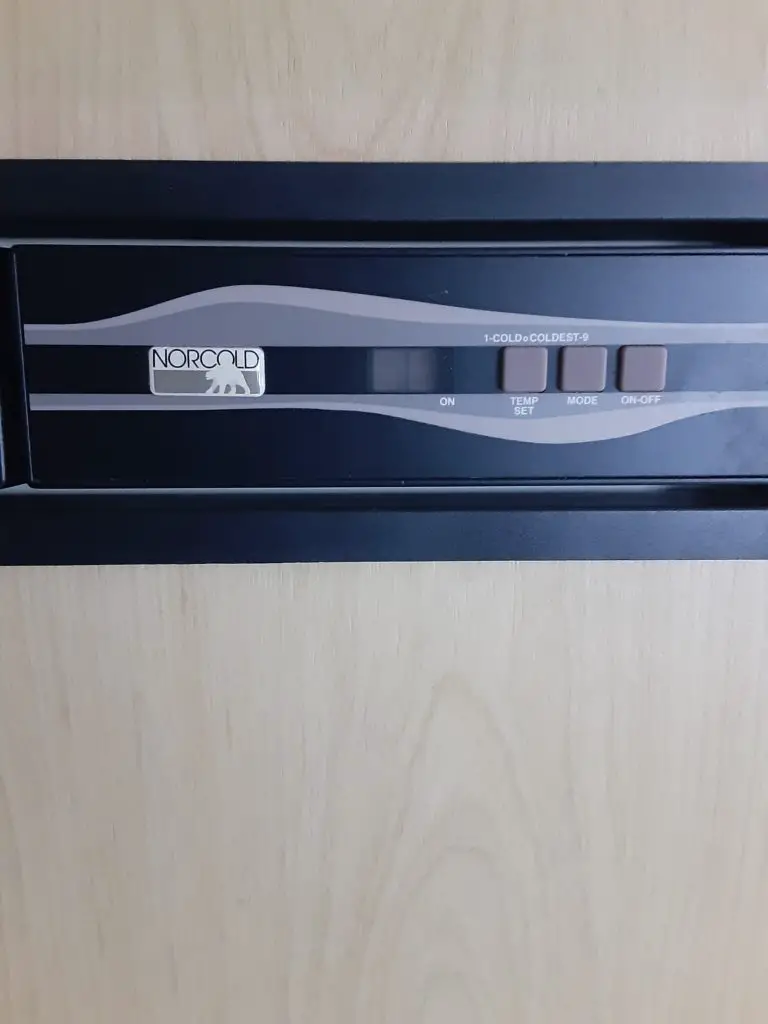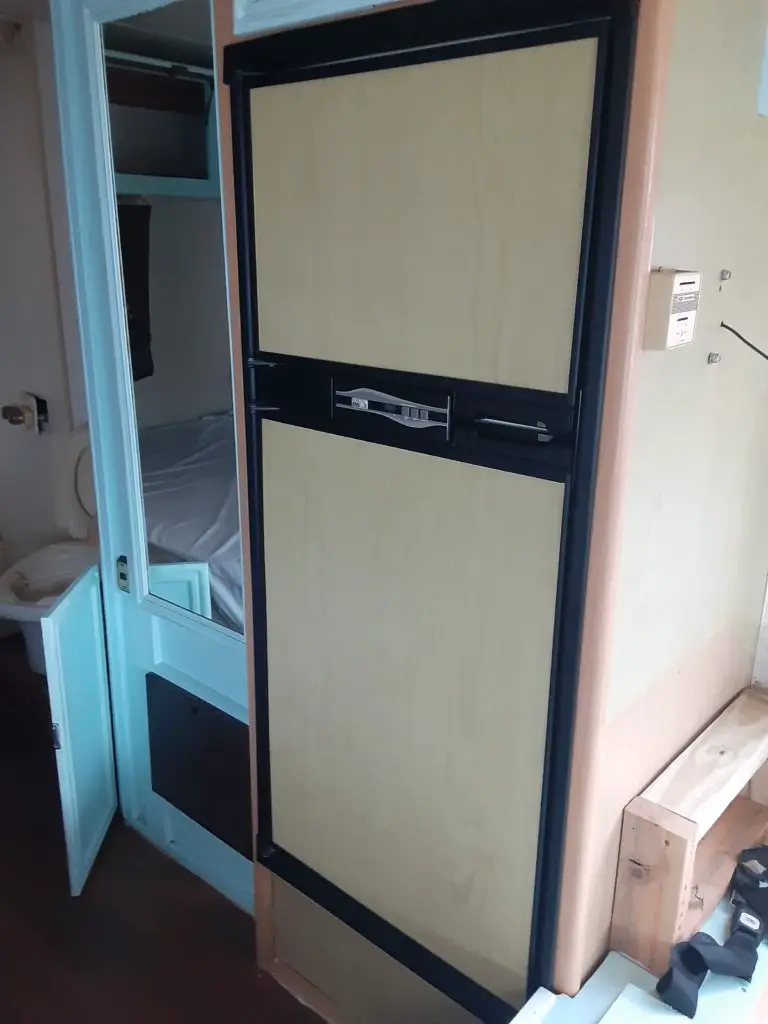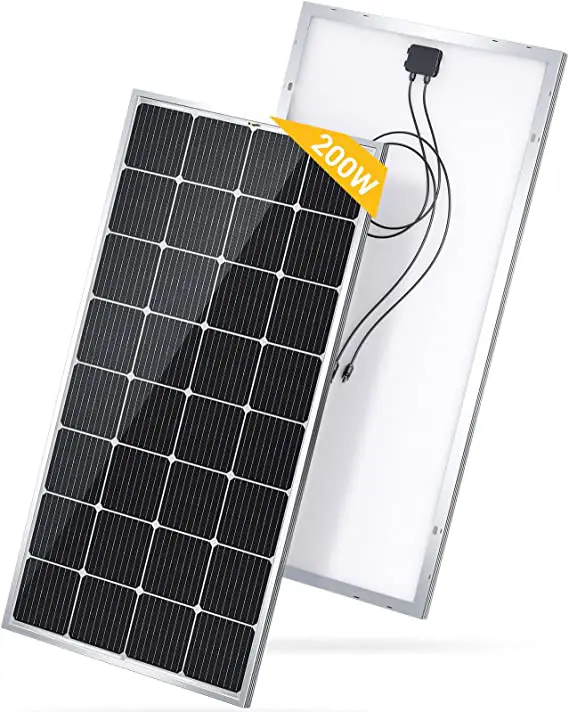When it comes to keeping food and drinks cold, an RV refrigerator is our best friend. Just like being at home, reaching into our chill box and grabbing a frosty cold beverage on a hot day is priceless.
We are going to talk about some of your options for an RV refrigerator, how to care for them properly and what happens if you need to replace one.
So, let’s just grab a cold one and learn a little about RV refrigerators.
What different types of refrigerators do RVs use?
The most common types are a 2-way or 3-way refrigerator in a typical RV. Larger or newer models have begun equipping their RVs with a residential model to provide more food storage.
Which model you choose will have a lot to do with the camping you do. If you are more of a Boondocker, then a residential one is probably not the best choice. If you stay put in an RV park for long periods with electrical hookups it might be right.
2-way refrigerator – gives the user the option of running the fridge using either AC power (shore power or generator) or LP gas.
3-way refrigerator – can use the power sources mentioned above, or DC power from the house batteries.
Residential refrigerator – same as at home, runs off AC power only
12V Compressor refrigerator – A new item on the scene is the refrigerator that can run off of a 12V DC current.
Save 50% on Campgrounds nationwide
The below Norcold can run off 12V DC or propane to get cold before our trip and once we arrive I can connect to shore power 120V AC. I could also use the generator or a solar panel setup if boondocking.

How does an RV refrigerator work?
Dometic Refrigerator – 2 way or 3-way option
a Dometic RV fridge has zero moving parts and uses ammonia, hydrogen gas, and water to maintain the cold temperatures needed to keep food fresh. This type of fridge is called an absorption refrigerator.
absorption fridge works by using heat to send the fluids mentioned above through various tubes, creating chemical reactions. The evaporation and condensation created by these reactions keep things nice and cool.
When a camper is connected to shore power or a generator, the heat needed to run the camper refrigerator is created by a heating element. Otherwise, an open flame produced by propane keeps the fridge up and running.
Residential refrigerator
A residential refrigerator uses AC power (shore power) as a source to run a compressor that keeps your contents cold. Your generator or even a proper battery bank using an inverter can also supply this AC power if needed.
How big are RV refrigerators?
Standard RV refrigerators will be between 4 and 12 cubic feet depending on which type you choose. Residential refrigerators are just the same size as what you would see in your home and measure between 18 to 21 cubic feet.

Save 50% on Campgrounds nationwide
Let Passport America provide you with a detailed list of more than 1000 campgrounds to enjoy while saving 50% on your camping experience.
How do you replace an RV refrigerator?
Removing a Dometic RV refrigerator
Removing the standard RV refrigerator and replacing it with a residential refrigerator unit
Which RV refrigerators are the best?
If you are sticking with a standard RV refrigerator there are 2 models that stand above the rest. Norcold Refrigerator 3.7 cu. Ft N3150AGR 5.3 Cf. or Dometic Refrigerator DM2652RB Americana Double Door have both stood the test of time in campers and RVs.
Residential refrigerators are great for newer, larger RVs that are mostly stationary but have some serious downsides also. First, the refrigerators are not built to handle the bouncing movement that an RV creates as it travels down the road. Second, without a robust solar power source or continuously running your generator, they need shore power at all times. Lastly, fitting a unit in an older model requires substantial modifications to be made.
RV Refrigerator Maintenance and Usage Tips
Most of these tips pertain to Dometic units
- Turn it on early — Your fridge will need at least 6 hours to fully cool down. Turn it on the night before you plan to use it.
- Start with cold stuff — Loading the RV refrigerator with cold items will help it cool down faster.
- Don’t overload it — It’s important to leave space for cool air to move between items. For this reason, you’ll need to make sure you don’t overpack your camper fridge.
- Install a fan — If you plan on camping in very hot weather, you will want to purchase and install a small refrigerator fan to help keep your unit cool.
- Keep it shut — Opening the fridge and freezer doors often will make the unit work harder to stay cool, so keeping the doors shut as much as you can is the way to go.
- Check the seals — Loose or dirty seals can also let cool air escape. Check your seals regularly and clean and replace them as needed.
- Take time to thaw — Trailer and motorhome refrigerators and freezers are not frost-free. If you’ll be using yours for an extended period of time, make sure to take time to thaw them out from time to time.
- Stay level — RV refrigerators can be ruined if run while unlevel, so be sure you’re always level while using yours.
- Don’t sit for long — Leaving your fridge sitting without running it can also damage it. Therefore, you’ll want to make sure you run it as often as possible.
- Check for obstructions — Regularly check the back and front vents for obstructions (such as leaves and debris) and remove anything you find there.
- Change the settings — You may find that you need to change the settings based on the weather. For instance, hotter weather may call for a cooler setting. Meanwhile, cooler weather will not require the fridge to work as hard, meaning a lower setting should be fine.
Frequently Asked Questions
How much propane will my RV refrigerator use?
one can typically expect to use an average of 1.5 lbs. of propane per day when running their RV refrigerator. This all depends on how it is used, adding products that need to be cooled, how much you open the door, and outside temperatures.
How long will an RV refrigerator last?
On average, you can expect to get between 12 to 20 years from your RV refrigerator. They have been known to last much longer in some cases, but also much less. Lifespan depends a lot on how well the fridge is taken care of from day one. Make sure to keep it clean from dust and debris, parking with your fridge in a shaded area, and just how much you travel in general.
How much does a new RV refrigerator cost?
If you want a quality unit, it is going to cost you. To replace your RV refrigerator it is going to run you anywhere from $1200 to $2800 depending on the model you choose. Add on the price for installation and the cost rises even more.
Conclusion
As with everything in your RV, regular maintenance is required to extend its life to the fullest. Keep it clean and free of debris on the outside and inside. Keep out of the sun as much as possible when choosing your location.
When choosing your refrigerator type, decide how you will be camping first. If you move around a lot of love to get off the grid, a residential unit is probably not for you.
For the most part, a Dometic fridge will last you many years of cold food and drinks. Mine is going on 35 and works perfectly every time, knock on wood!
Troubleshooting your Hot Water heater
Inverters and Converters: what are they and do I need them




